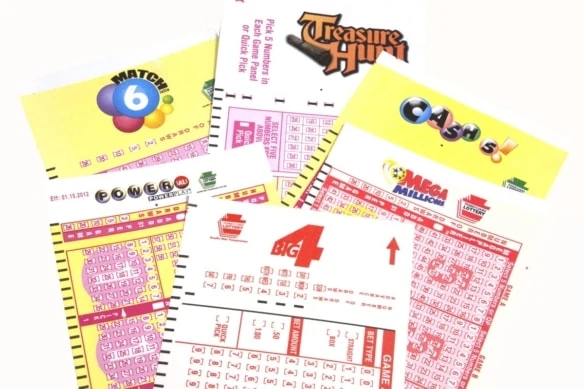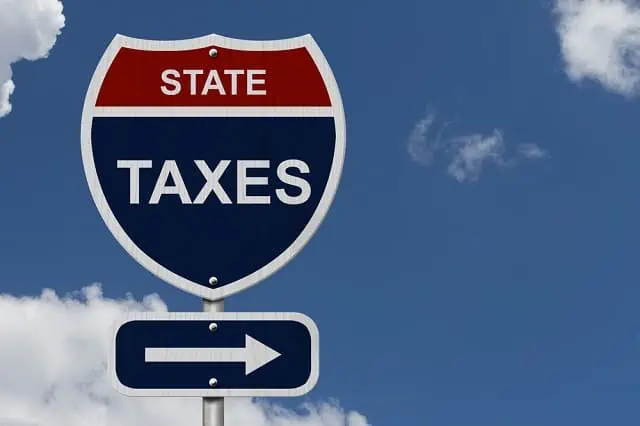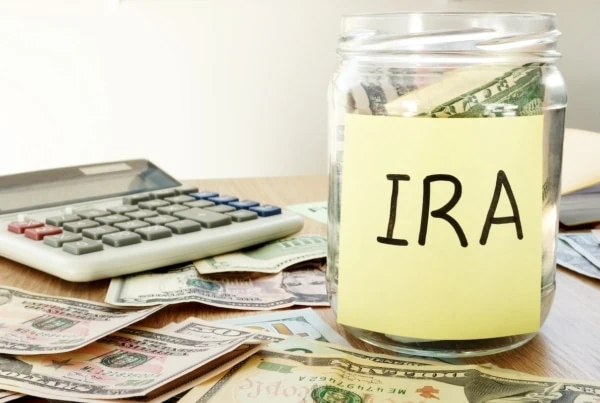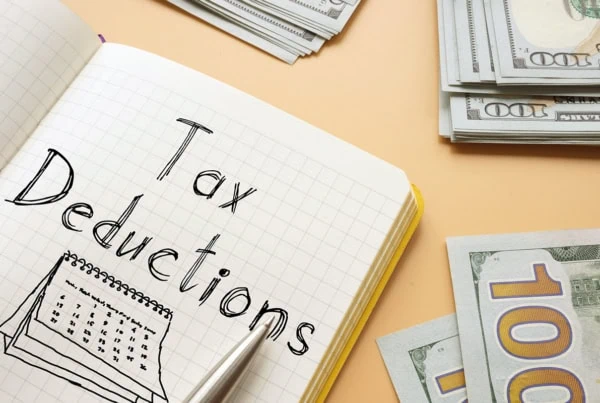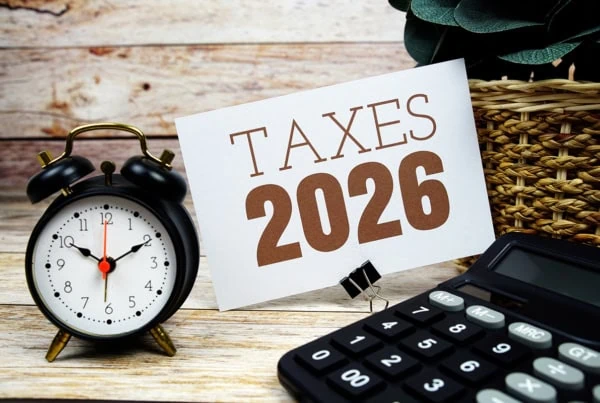If you’re lucky enough to win a big lottery jackpot, you might be a tad disappointed when you actually receive the prize money. That’s because Uncle Sam is going to take a big bite out of your winnings in advance to cover federal taxes. Plus, you might owe even more when you file your tax return for the year.
You’ll still come out ahead by a wide margin, so don’t expect anyone to shed a tear for you. Afterall, taxes are just a part of life. But it still sucks when you think you’re getting a certain dollar amount and end up with something smaller.
However, if you win a lottery jackpot, you can take some of the sting out of the taxes on your winnings by understanding up front how taxes on lottery prizes work. That way, you’ll know what to expect and won’t be surprised when you receive your money.
To get up to speed, check out the following guide to lottery taxes. It will clue you in on the applicable tax rates, tax withholding, IRS forms to expect, possible tax deductions, and more. If you do hit the jackpot, you’ll already be prepared for the inevitable tax hit.
Related: What’s Your Standard Deduction?
Federal Income Tax Rates on Lottery Winnings

The current federal income tax rates are 10%, 12%, 22%, 24%, 32%, 35%, and 37%. So, depending on the amount of prize money received, the federal tax on lottery winnings can be relatively low (10%) or quite high (37%).
Whether you pay a high rate or a low rate depends on your tax bracket, which is based on your filing status and taxable income for the year. Of course, the amount of money you win will be added to your taxable income, which can push you into one of the higher tax brackets.
If you win a really big jackpot, then you’ll likely find yourself in the highest federal tax bracket and paying tax at the 37% rate. For the 2025 tax year, the 37% rate kicks in if your taxable income exceeds $626,350 and you’re single ($609,350 for 2024). If you’re married and file a joint tax return, then the top tax rate applies to taxable income over $751,600 ($731,200 for 2024). As a result, lottery prizes above the applicable threshold amount will be taxed at the top federal tax rate.
Lump-Sum vs. Annuity Payments: Impact on Lottery Winnings Tax

With some lottery prizes, you can either take a one-time lump-sum payment or spread out your winnings over several years (usually 30 years) with annual annuity payments. Which option you choose could have an impact on your tax rate.
For example, if you take a lump-sum payout that is above that year’s threshold for the 37% federal tax rate, you’re going to pay the top rate on the entire payment. However, if each annual annuity payment is below the top rate’s threshold for the year, you will pay a lower tax rate on each payment.
That doesn’t necessarily mean less tax owed overall, though. In the long run, you could end up paying more in taxes over a 30-year period than you would if you just paid tax on a single lump-sum payment. (This is one reason why most large lottery winners take a lump sum.)
It’s best to check with a qualified financial advisor before picking either a lump-sum payment or an annuity if you win a substantial amount of money.
Related: 9 States That Tax Social Security Benefits
Income Tax Withholding on Lottery Winnings
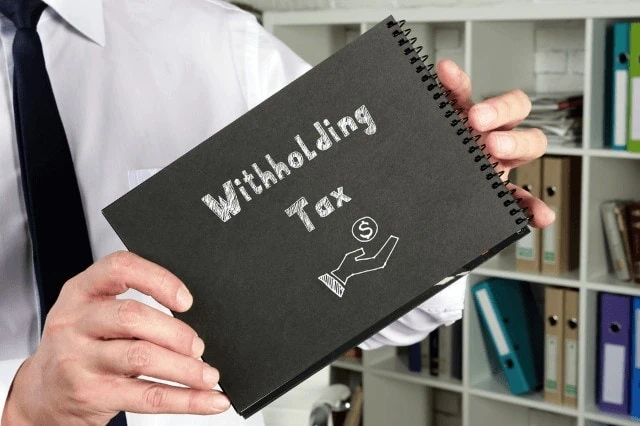
Lottery prizes of $5,000 or more are subject to federal income tax withholding. As a result, if you win a jackpot worth that much, 24% of your winnings will be withheld from your payment for federal taxes.
That money is sent to the IRS. However, it’s applied toward your overall tax bill when you file your federal tax return for the year. So, it’s not an additional tax—it’s more like paying part of your tax bill in advance.
Form W-2G: Information Return for Gambling Winnings
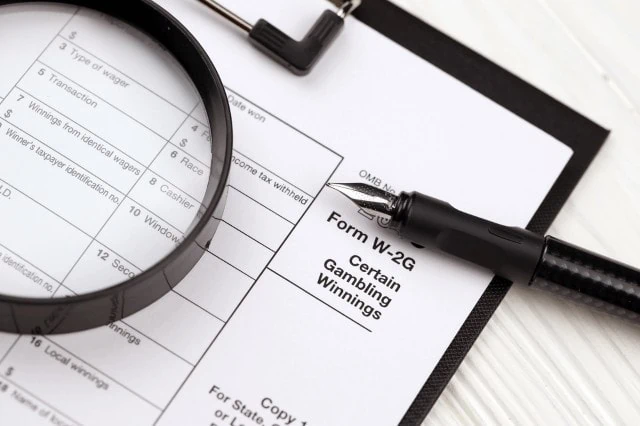
If you win at least $600 from a lottery, you’ll receive a Form W-2G in the mail by January 31 of the following year. The form will list your lottery winnings, federal and state taxes withheld, and other information required by the IRS.
The IRS will also receive a copy of the form. So, don’t even think about reporting a different amount on your tax return. That’s a sure fire way to draw attention to your tax return, which is something you definitely don’t want.
Filing Your Tax Return After Winning the Lottery
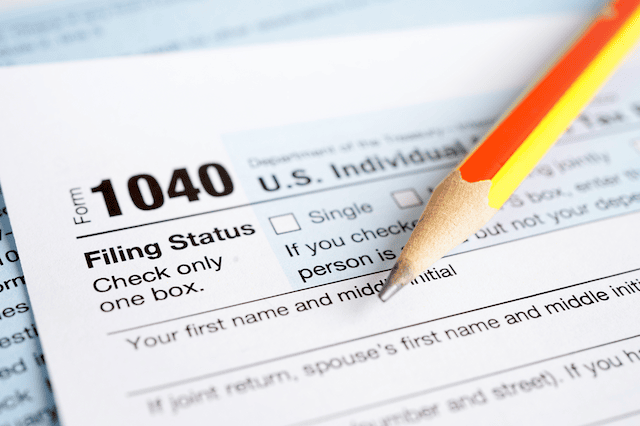
Lottery winnings are reported on your tax return as gambling income on Line 8b of Schedule 1 (Form 1040). The amount that goes on this line can be found in Box 1 of the Form W-2G you receive. If you receive more than one W-2G form, report the combined total of all Box 1 amounts.
If you don’t win enough to trigger a W-2G form, you’re still required to report all gambling winnings on Schedule 1.
YATI Tip: If any federal tax was withheld from your lottery payments, attach the Form W-2G you received to your federal tax return (Form 1040).
Related: IRA Contribution Limits for 2024
Deducting Gambling Losses If You Win the Lottery
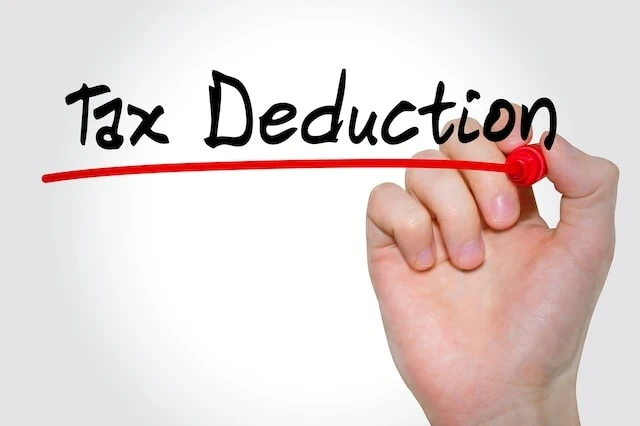
If you report lottery winnings or other gambling income on your tax return, you might also be able to deduct any gambling losses for the year (up to the amount of your gambling income).
There is a catch, though. You can only deduct gambling losses if you claim itemized deductions on Schedule A (Form 1040). So, if you claim the standard deduction, you can’t deduct gambling losses.
Related: How to Make $20 Fast [10 Legit Ways to Get Free $ Instantly]
State Taxes on Lottery Winnings
States often tax lottery winnings, too. The top tax rates in some states are significant. For instance, tax rates are as high as 11% in Hawaii, 10.9% in New York, and 10.75% in New Jersey.
In addition, states that tax lottery winnings typically withhold state taxes on your payments. So, the amount of money lottery winners actually receive is usually reduced by both federal and state taxes paid in advance to the government. And, once again, if anything more is due to your state you’ll have to pay that amount when you file your state tax return for the year.
Check with the state tax agency where you live for more exact tax rates and withholding rules if you’re lucky enough to win a lottery jackpot.
On the bright side, you don’t have to pay state taxes on lottery winnings in some states. For instance, there’s no tax in Alaska, Florida, Nevada, New Hampshire, South Dakota, Tennessee, Texas, Washington, and Wyoming because there’s no income tax in these states. Elsewhere, California doesn’t tax lottery winnings if the winning ticket was purchased in the state.
Related:



